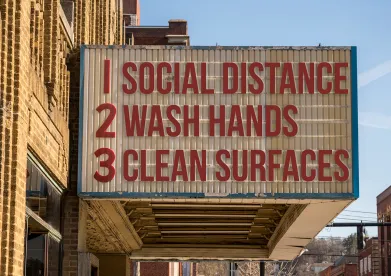On May 6, 2020, California Governor Gavin Newsom issued Executive Order N-62-20, which creates a rebuttable presumption that an employee’s COVID-19-related illness arose out of the course of employment for purposes of obtaining workers’ compensation benefits.
In order for the presumption to apply, an employee must have been diagnosed with COVID-19 or tested positive for it within 14 days after performing work for the employer, at a location other than the employee’s home, between March 19, 2020, and July 5, 2020. Additionally, if the employee was originally diagnosed with COVID-19 but not tested, the diagnosis must have been performed by a licensed physician and the diagnosis must be confirmed by further testing within 30 days.
The presumption is disputable, and may be challenged by “other evidence.” However, employers only have 30 days to provide existing evidence to rebut the presumption. After 30 days have passed, only evidence discovered after the 30-day period may be provided. Further, with the burden shifted to the employer, overcoming the presumption may prove difficult.
Under this order, employees are entitled to full workers’ compensation benefits, including full hospital, surgical, medical treatment, disability indemnity, and death benefits. There is no waiting period for temporary disability benefits. However, before obtaining temporary disability or other benefits, employees entitled to COVID-19-related paid sick leave must first exhaust that leave.
Several states, including Alaska, Illinois, Kentucky, Minnesota, Missouri, and Wisconsin, have changed their workers’ compensation rules to include a rebuttable presumption that employees who contracted COVID-19 did so in the course of employment. However, the majority of those states only extended protections to workers providing primary care, such as healthcare workers and law enforcement.
Like California, Illinois went further and provided protections to all essential workers, but the Illinois law was challenged in the courts and ultimately repealed by the Illinois Workers’ Compensation Commission, which cited the cost and length of the legal battle. The new California executive order will likely be challenged by businesses as well, as they are forced to either pay employees’ medical bills or attempt to overcome the presumption.




 />i
/>i

